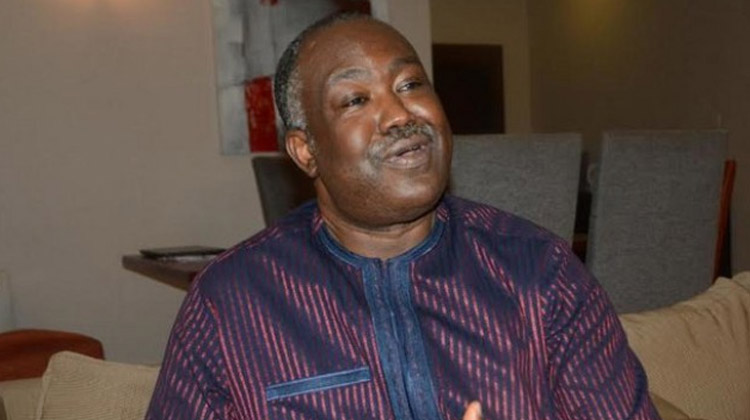Gbenga Olawepo-Hashim, a prominent figure within the Peoples Democratic Party (PDP), has voiced strong opposition to the party’s recent decision to zone its presidential ticket to the southern region of Nigeria. He contends that this strategic move inadvertently bolsters President Bola Tinubu’s prospects for re-election, essentially serving as a tacit endorsement of his candidacy. Olawepo-Hashim argues that proponents of this zoning arrangement within the PDP are subtly working in favor of Tinubu’s continued presidency, effectively undermining their own party’s chances of fielding a competitive candidate. This, he posits, creates a clear path for Tinubu’s re-election, as the PDP’s potential pool of strong contenders is artificially limited.
Central to Olawepo-Hashim’s critique is the assertion that this zoning decision deviates from established PDP precedent. He points to previous presidential primaries, highlighting that the party has historically allowed candidates from all regions to compete freely. Citing examples from 1999 and 2003, he emphasizes that even with an incumbent president from the south, northern candidates were not excluded from contesting the nomination. This, he argues, demonstrates the party’s long-standing commitment to open competition, a principle now seemingly abandoned with the current zoning policy. He views the NEC’s decision as a significant misstep, a “big error” despite its democratic endorsement within the party’s internal structures.
Beyond the political implications, Olawepo-Hashim raises concerns about the legality of the zoning decision. He argues that it potentially infringes upon the Nigerian Constitution, which prohibits discrimination against party members based on their geographical origin. This, he warns, could expose the PDP to legal challenges, with potential court actions by excluded candidates jeopardizing the validity of the party’s eventual nominee. While acknowledging the NEC’s authority to make such decisions, he underscores the party’s inherent “self-correcting mechanism,” suggesting that the zoning policy could be reversed by a future NEC or convention. He draws parallels to historical instances where controversial NEC decisions were ultimately overturned at national conventions, emphasizing the dynamic and evolving nature of party politics.
Shifting his focus to internal party dynamics, Olawepo-Hashim congratulates Ambassador Iliya Damagun on his confirmation as the substantive National Chairman, commending the PDP’s resilience and unity in navigating its internal leadership transition. He contrasts the PDP’s internal democratic processes, including caucus meetings and open debates, with other parties. However, he reiterates his belief that the zoning campaign is primarily orchestrated by PDP members sympathetic to Tinubu’s re-election, suggesting a deliberate attempt to weaken the party from within. He frames this as a tactic to stifle competition and ensure Tinubu’s unchallenged return to power, echoing historical patterns of political maneuvering in Nigeria.
Expanding on the broader political landscape, Olawepo-Hashim draws a parallel between the current situation and past political crises in Nigeria, cautioning against the potential for instability arising from restricting electoral contests. He criticizes the ruling All Progressives Congress (APC) for what he deems a decade of disastrous governance, pointing to the significant decline in Nigeria’s GDP as a key indicator of economic mismanagement. He characterizes the APC’s tenure as a period of economic collapse, transcending the terms “recession” or “depression.”
Despite his critical assessment of the prevailing political and economic climate, Olawepo-Hashim maintains an optimistic outlook for Nigeria’s future. He expresses confidence in the country’s potential for recovery and growth, provided it is steered in the right direction with sound leadership and effective policies. This optimism, however, is tempered by his concerns about the PDP’s current trajectory, specifically its decision to zone the presidency, which he views as detrimental to both the party’s and the nation’s prospects. He implicitly calls for a reconsideration of this policy, advocating for a return to open competition and a broader field of candidates to maximize the chances of selecting the most qualified individual to lead Nigeria forward.














